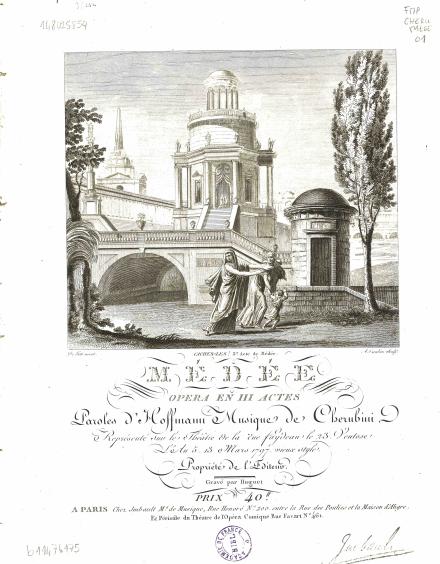Médée

At its premiere at the Théâtre Feydeau, on 13 March 1797, this three-act opera met with a lukewarm reception from audiences despite being a critical success. After about twenty performances, it disappeared from the stage in Paris until… 1962. It was more enthusiastically received in Germany where it was mounted in 1800 in Berlin, two years later in Vienna, then revived in various cities throughout the 19th century (Brahms regarded it as the “pinnacle of dramatic music“). It was for the Frankfurt production in 1855 that Franz Lachner composed recitatives to replace the spoken dialogues (in Alexandrines) from the original work. In 1909, the Italian premiere at La Scala in Milan gave rise to an Italian version (with a translation of Lachner’s recitatives) which was used routinely after that date, even though, since the end of the 20th century, the 1797 version has gradually begun to make up lost ground. Inspired by Euripides and Corneille, the libretto by François-Benoît Hoffmann focuses more on the heroine than on external events. In fact, the title role calls for a dramatic soprano with great stamina and a broad vocal range, capable of conveying the character’s inner conflict, particularly in Act II. Her psychological development is also translated by the richness of the harmonic discourse, tonal shading and orchestral writing. Cherubini uses colour to convey the drama, particularly in the epic scenes (for example, the storm, followed by the burning down of the temple and palace in Act III). His Médée did not appeal to audiences in the late 18th century perhaps because, by bridging the gap between tragédie lyrique and grand opera, it was already timeless.

